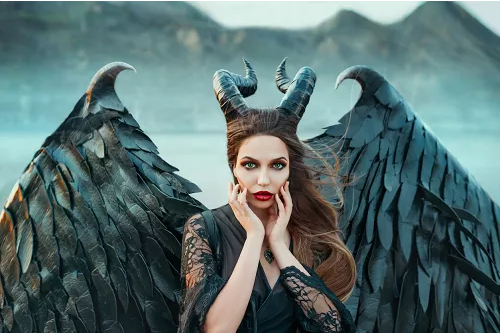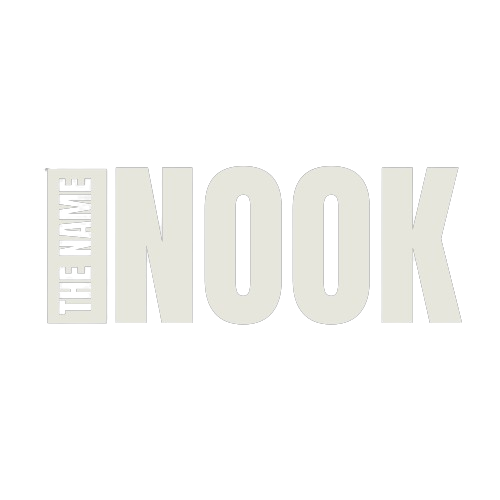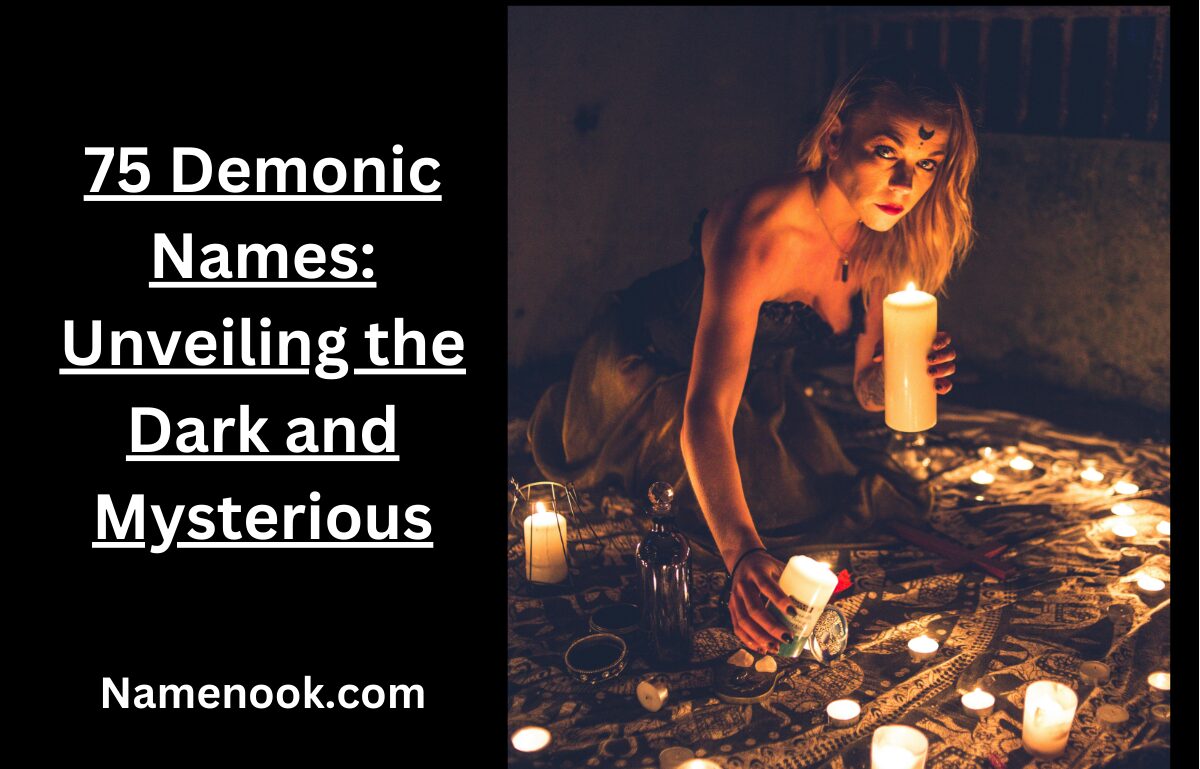Have you ever been intrigued by the names that invoke fear and fascination at the same time? Welcome to the enigmatic world of demonic names. These names, steeped in history, mythology, and popular culture, carry a dark allure that captivates many. But why are these names so intriguing? Let’s delve deep into the origins, meanings, and impact of demonic names across various spheres.
Male Demon Names and Meanings

Explore the captivating allure of male demon names, each with its unique meaning and origin. Whether you’re seeking inspiration for a story character or simply intrigued by their mystique, immerse yourself in the fascinating world of these demonic monikers.
- Abaddon: Originating from Hebrew, Abaddon signifies destruction. In the Bible, Abaddon is a fallen angel residing in a “bottomless pit.”
- Agares: In demonology, Agares is known as a demon who causes earthquakes.
- Ahriman: This Persian name refers to the evil spirit in Zoroastrianism, an ancient Iranian religion.
- Akuma: In Japanese culture, Akuma is a malevolent fire spirit in Buddhism and also refers to Satan in the Japanese Bible.
- Alastair: In Greek mythology, Alastor is an avenger of evil deeds and the personification of curses.
- Amon or Aamon: In demonology, Amon is one of the Grand Marquis of Hell.
- Asmodeus: According to Jewish legends, Asmodeus is the king of demons who foretells the division of Solomon’s kingdom.
- Astaroth: This name refers to the Great Duke of Hell and one of the evil trinity, alongside Beelzebub and Lucifer.
- Azazel: In Jewish legend, Azazel embodies uncleanliness.
- Baal: Originating from Canaanite-Phoenician legend, Baal is a pagan god of rainstorms.
- Bakemono: A shape-shifting demon from Japanese mythology.
- Beelzebub: In Christian demonology, Beelzebub is another name for the devil, derived from the pagan god Baal. He is part of the evil trinity with Astaroth and Lucifer.
- Behemoth: In the Hebrew Bible, Behemoth is a monstrous creature, personifying Satan as a grotesque, grass-eating animal.
- Belphegor: Representing sloth in the Hebrew Bible.
- Belial: In Hebrew culture, Belial personifies wickedness or worthlessness and is often used as a name for the devil in the Bible.
- Cerberus: The giant, three-headed dog who guards the gates to the Underworld in Greek mythology.
- Charon: The ferryman in Greek mythology who transports souls to the Underworld.
- Cronus: The king of the Titans and the embodiment of chaos and destruction in Greek mythology.
- Dagon: Of Sumerian origin, Dagon is the demon lord of the sea and sea monsters in ancient Syrian mythology.
- Dracula: The infamous vampire nobleman from Bram Stoker’s 1897 novel. The name Dracula has Slavic roots meaning “son of Dracul” or “son of the devil.”
- Fenrir: From Norse mythology, representing a monstrous wolf god. Fenrir is also an evil werewolf in the Harry Potter series.
- Frollo: In Arthurian legend, Frollo means “killed by Arthur.” He is also the main antagonist in Victor Hugo’s The Hunchback of Notre Dame.
- Hades: The Lord of the Underworld in Greek mythology.
- Hermes: The messenger god who also leads dead souls to the Underworld in Greek mythology.
- Iago: A Spanish name meaning “supplanter,” famously associated with the antagonist in Shakespeare’s Othello.
- Iblis: The Islamic name for the leader of the devils.
- Jinn: In Arabic mythology, Jinn are invisible creatures from pre-Islamic pagan belief systems, capable of being good or evil.
- Lucifer: Meaning “shining star” in Hebrew. Lucifer is a fallen angel and a name often used by Christians for the devil. He is also part of the evil trinity with Astaroth and Beelzebub.
- Lucius: Lucius Malfoy is an antagonist in the Harry Potter series. His name likely derives from Lucifer, with “Malfoy” incorporating the Latin prefix “mal,” meaning “bad.”
- Mephistopheles: Originating in German mythology, Mephistopheles is an agent of the devil.
- Osiris: The god of the Underworld in Egyptian mythology.
- Pazuzu: With Assyrian origins, Pazuzu is the ancient Babylonian king of demons and personification of the West wind.
- Phenex: In Christian demonology, Phenex is one of the great Marquis of Hell, also representing science and poetry.
- Rakshasa: In Hindu mythology, Rakshasas are shape-shifting demons or goblins.
- Samael: An Arabic name meaning poison or “poison of God.” Samael is an Angel of Death in Judaism and shares similarities with the Christian Satan as a fallen angel.
- Satan: The name of the devil in Abrahamic religions, known for seducing humans into sin.
- Sut: In Islamic demonology, Sut is a devil who tempts people to lie.
- Thanatos: The god of peaceful death in Greek mythology.
- Ur: In ancient Mandaeism, Ur is a serpent being and ruler of the Underworld.
Female Demon Names and Meanings

Similarly, the list of female demon names reveals characters that are equally compelling and formidable. These names, rich in history and myth, embody the multifaceted nature of female demons as depicted throughout various cultures.
- Abyzou: Of Sumerian origin, Abyzou is a female demon often blamed for infertility and miscarriages.
- Ala: In Slavic folklore, Ala is a female demon associated with bad weather and thunderstorms.
- Alana: A demonic female figure in Turkish folklore.
- Anath: A Greek-origin name referring to a pagan goddess of love and war, and the sister of Baal, the god of rainstorms.
- Angra Mainyu: This Persian name denotes a female demon who was the destructive, evil spirit in Zoroastrianism.
- Astarte: A Greek name for the pagan goddess of war, hunting, and love, later demonized by early Christians.
- Atropos: One of the Fates in Greek mythology, Atropos cuts the thread of life, resulting in death.
- Bast: In Egyptian mythology, Bast is the goddess of pleasure.
- Bellatrix: Bellatrix Lestrange, a dark witch in the Harry Potter series, translates to “female warrior” in Latin.
- Carpathia: Nicolae Carpathia in the Left Behind series is considered the antichrist, the opposite of Jesus.
- Cruella: Cruella De Vil, the main antagonist in 101 Dalmatians, has a name derived from “cruel” and “devil.”
- Eileithyia: In Greek mythology, Eileithyia is the goddess of childbirth and labor pains, also associated with early death.
- Erinyes: Goddesses of vengeance in Greek mythology, punishing humans for their crimes.
- Hecate: A powerful dark goddess of magic and witchcraft in Greek mythology, associated with nighttime and the moon.
- Hypnus: The personification of sleep in Greek mythology.
- Ishtar: Of Mesopotamian origin, Ishtar is the goddess of war and sexual love, protector of sex workers and bar owners.
- Jadis: Inspired by an evil female figure in literature, Jadis is the real name of the White Witch from The Chronicles of Narnia.
- Keres: Spirits of violent or cruel death in Greek mythology.
- Klotho: One of the Fates in Greek mythology, responsible for spinning the thread of life.
- Lakhesis: Another Fate in Greek mythology, responsible for measuring the thread of life.
- Leviathan: A famous sea monster of Hebrew origin, described in the Bible.
- Leanan: Leanan Sidhe, an evil fairy in Irish folklore, acts as an artistic muse for human lovers and often leads them to an early death.
- Lilith: In Jewish mythology, Lilith was supposedly Adam’s first wife in Genesis, cast away for refusing to submit to him.
- Maleficent: Meaning “bad” in Latin, Maleficent is the main antagonist in Disney’s Sleeping Beauty, embodying pure evil.
- Mammon: A Christian Biblical demon personifying greed.
- Mania: In Roman mythology, Mania is the goddess of the dead; in Etruscan mythology, she is the goddess of Hell; and in Greek mythology, she is the goddess of insanity.
- Mara: In Buddhism, Mara is a celestial king who tempted Siddhartha with visions of beautiful women.
- Medusa: A misunderstood monster in Greek mythology, Medusa has snakes for hair and can turn people to stone with her gaze.
- Morgen: Water spirits in Welsh mythology, similar to sirens, luring men to their deaths with their voices.
- Nagini: The name of the pet snake of the main antagonist in the Harry Potter series, likely derived from Nachash, the snake that tempted Adam and Eve.
- Nyx: In Greek mythology, Nyx personifies the night.
- Persephone: The Queen of the Underworld in Greek mythology, married to Hades.
- Preta: Of Hindu origin, Preta in Buddhism personifies extreme suffering.
- Qarinah: A female demon or succubus in Arabic folklore, seducing men in their dreams.
- Qin: In Mandaeism, Qin is the queen of darkness.
- Tiamat: A Sumero-Babylonian name for a goddess of the sea.
What Are Badass Demon Names?
Some compelling and badass demon names include Azazel, Belial, Leviathan, and Lilith. Each of these names has a rich background from various mythologies, symbolizing strength, chaos, and intrigue.
Historical Context of Demonic Names
Origins in Ancient Cultures
Demonic names can be traced back to ancient civilizations where demons were often depicted as powerful beings capable of great evil or chaos. For example, the Sumerians had Pazuzu, a demon known to bring famine and locusts. Ancient Egypt had its own set of malevolent entities, including Apophis, the serpent demon of chaos.
ALSO READ: Duck Names For Aquatic Friendship
Influence of Religion and Mythology
Religious texts, especially within Christianity, Judaism, and Islam, have significantly influenced the perception of demonic names. Names like Lucifer and Beelzebub are deeply embedded in religious narratives as symbols of ultimate evil and rebellion against divine authority.
Popular Demonic Names and Their Meanings
Lucifer
Perhaps the most well-known of all, Lucifer is often associated with the fallen angel who defied God and was cast out of heaven. The name means “light-bringer” or “morning star” in Latin, reflecting his former glory before his fall.
Beelzebub
Another prominent name, Beelzebub, translates to “Lord of the Flies” in Hebrew. Often depicted as a high-ranking demon in hell, he is considered a powerful adversary in various religious texts.
Lilith
Lilith is a figure in Jewish mythology, often portrayed as Adam’s first wife who became a demon after refusing to submit to him. Her name is synonymous with seduction and rebellion.
Asmodeus
Known as the demon of lust and one of the seven princes of hell, Asmodeus’s name is derived from the Avestan language and means “wrath.”
Demonic Names in Literature and Media
Classic Literature
Demonic names have long been a staple in literature. John Milton’s “Paradise Lost” is a prime example, where Lucifer’s fall from grace is a central theme. Similarly, Dante’s “Inferno” explores various demonic entities and their realms.
Modern Books and Films
In contemporary media, demonic names continue to play pivotal roles. From horror novels like Stephen King’s “The Stand,” which features the demon Randall Flagg, to films like “The Exorcist,” where the demon Pazuzu is central, these names evoke a sense of dread and curiosity.
The Use of Demonic Names in Popular Culture
Music and Bands
Many bands, especially in the heavy metal and rock genres, incorporate demonic names to add a rebellious or dark edge to their persona. Bands like Black Sabbath and Slayer often reference demonic figures in their lyrics and imagery.
Video Games
Video games, particularly in the horror and fantasy genres, frequently feature demonic names. Games like “Diablo” and “Doom” immerse players in worlds where they combat demonic forces, with names like Baal and Mephisto becoming iconic within gaming communities.
The Symbolism Behind Demonic Names
Power and Rebellion
Demonic names often symbolize a challenge to authority and a thirst for power. Figures like Lucifer epitomize rebellion against divine order, resonating with themes of freedom and self-determination.
Fear and the Unknown
These names also embody fear and the unknown. The mystery surrounding their origins and the power they supposedly wield makes them subjects of both dread and fascination.
Lesser-Known Demonic Names
Astaroth
Astaroth is a duke of hell in demonology, often depicted as a fallen angel. His name is less familiar but carries significant weight in occult practices.
Belphegor
Known as the demon of sloth, Belphegor’s name is associated with laziness and cunning. He is believed to lure people into procrastination and idle dreams.
Mammon
Mammon represents greed and material wealth. In various texts, he is depicted as a demon who corrupts souls through the promise of riches.
Demonic Names Across Different Cultures
Western Cultures
In Western traditions, demonic names like Satan and Leviathan are prevalent, heavily influenced by Christian demonology and medieval folklore.
Eastern Cultures
Eastern traditions have their own demonic entities, such as the Japanese Oni and Hindu Rakshasas. These names often reflect local beliefs and mythologies about evil and chaos.
African and Indigenous Cultures
African and Indigenous cultures also have unique demonic names and concepts. For instance, the Yoruba mythology features Eshu, a trickster deity often associated with chaos and disruption.
How Demonic Names Are Used in Rituals and Magic
Summoning Rituals
In various occult practices, demonic names are invoked in summoning rituals. Practitioners believe that calling a demon by its true name can grant them control or favor.
Protective Spells
Interestingly, demonic names are sometimes used in protective spells. By invoking a powerful demon, practitioners aim to ward off lesser spirits and negative influences.
Controversies Surrounding Demonic Names
Religious Perspectives
Religious communities often view the use of demonic names as dangerous and blasphemous. The belief is that invoking these names can invite evil influences and disrupt spiritual harmony.
Societal Impacts
There is also societal concern over the glorification of demonic names in media and entertainment. Critics argue that it can desensitize people to the concepts of evil and morality.
Demonic Names in Modern Witchcraft and Paganism
Modern Practices
In modern witchcraft and paganism, demonic names are sometimes integrated into rituals and practices. However, these uses are often symbolic rather than literal, focusing on the qualities these names represent.
Ethical Considerations
There are ethical debates within these communities about the use of demonic names. Some practitioners argue for respect and caution, while others see them as powerful tools for personal empowerment.
The Psychological Impact of Demonic Names
Fear and Fascination
The psychological impact of demonic names is profound. They evoke a primal fear but also a deep fascination, compelling people to explore their meanings and stories.
Influence on Behavior
For some, the use of demonic names can influence behavior, either by invoking a sense of power or by feeding into fears and superstitions.
Creating Your Own Demonic Names
Elements to Consider
When creating your own demonic names, consider elements like etymology, symbolism, and cultural context. The name should evoke the desired emotional and psychological response.
Examples and Tips
Combine harsh consonants and dark, mysterious vowels. For instance, names like Zarkon or Thalaxis can sound suitably ominous. Ensure the name fits the narrative or purpose you’re aiming for.
The Future of Demonic Names
Evolving Perceptions
As society evolves, so do perceptions of demonic names. While once feared and shunned, these names are increasingly viewed through a lens of curiosity and cultural significance.
Influence of Digital Media
Digital media continues to shape how demonic names are perceived and used. Online games, forums, and social media amplify their presence, influencing new generations.
Conclusion
Demonic names have journeyed through history, religion, and culture, leaving an indelible mark. Their allure lies in their power to evoke fear, rebellion, and fascination. Whether through literature, media, or modern practices, these names continue to captivate and mystify. As our understanding evolves, so too will our relationship with these dark and intriguing monikers.
FAQs
What is the significance of demonic names?
Demonic names hold significant cultural, religious, and psychological importance. They symbolize power, rebellion, fear, and the unknown.
Are demonic names real or fictional?
Demonic names can be both real and fictional. Some originate from ancient religious texts and mythologies, while others are creations of modern literature and media.
How are demonic names used in modern culture?
Demonic names are prevalent in modern culture, appearing in literature, films, music, video games, and even modern witchcraft and pagan practices.
Can using demonic names be dangerous?
Using demonic names can be controversial and potentially dangerous, especially within religious contexts. They can evoke strong psychological responses and are often linked to superstitions.
How can one research more about demonic names?
To research more about demonic names, explore religious texts, mythology books, academic studies on demonology, and cultural analyses. Online resources and forums can also provide insights.

